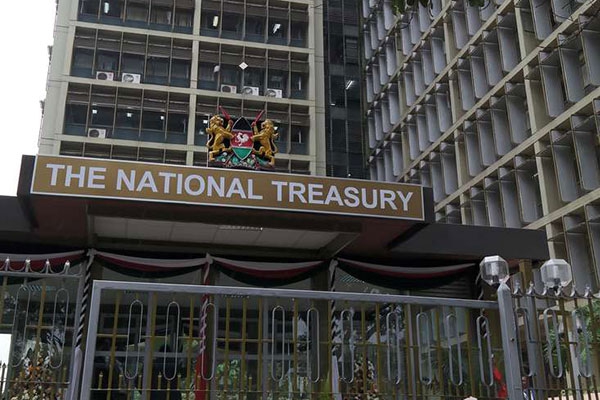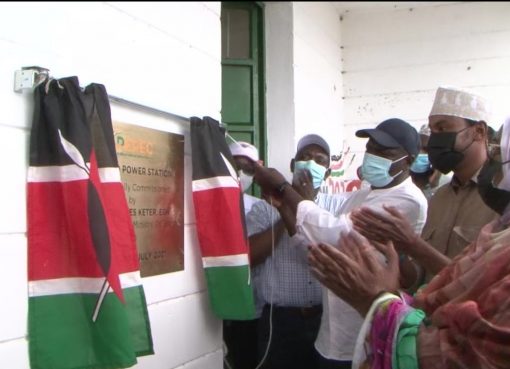The National Treasury is working towards developing a national strategy to improve the governance and financial oversight, as well as address the debt vulnerabilities of State Corporations (SCs) as outlined in the 2013 Presidential Taskforce Report on Parastatal Reforms.
Treasury Cabinet Secretary (CS) Ukur Yatani said that Kenya has approximately 260 SCs which play important role in the economic and social development of the Country, by providing essential social services and achieving strategic commercial objectives, on behalf of the Government and for the benefit of the citizenry.
Yatani said that on the flip side, the financial performance and operational efficiency of many SCs, have been deteriorating in recent years, weighing heavily on public finances by increasingly relying on budgetary support from the central government in form of grants, subsidies, government loans and debt guarantees.
The CS in a press statement to newsrooms said that the National Treasury selected 18 major State Corporations based on the size of their activities, strategic importance and financial risks, to undertake an in-depth financial evaluation and fiscal risk analysis.
“State Corporations are facing financial shortfalls or liquidity gaps, the 18 SCs have an estimated cumulative financial shortfall of about Sh70 billion annually, over the next five-year period,” said Yatani.
He said that from the sampled State Corporations for the financial evaluation, the estimated liquidity gap over the next five year period is Sh382 billion and this calculation is based on a set of conservative assumptions, which presupposes that the entities’ financials will in the Financial Year (FY) 2021-22 be affected by the Covid-19 pandemic to the same degree as they were in FY2020-21 and that their financial health is fully restored during the Five-year evaluation period, with no extraordinary budgetary support and no borrowing to fill unmet liquidity needs.
“The estimated liquidity gap reflects the sizable financial woes in the State Corporations Sector. If these challenges are not addressed, they may crystalize into significant fiscal risks to Kenya’s economy,” said Yatani.
He said that this requires multi-faceted efforts by all stakeholders to address the financial challenges facing SCs, including, but not limited to possible reforms and restructuring, through expenditure rationalization, revenue enhancing measures and sealing of revenue leakages to minimize financial support from the Exchequer.
Yatani said that the profit-making agencies are Kenya Ports Authority (KPA), Kenya Pipeline Company Ltd (KPC), Kenya Airports Authority (KAA) and the Kenya Electricity Generating Company PLC (KenGen), which regularly pay dividends and taxes and are the main revenue earners in the State-Owned Enterprises sector.
“The unprofitable agencies include Kenya Power and Lighting Company PLC (KPLC) and Kenya Railways Corporation (KRC) which are highly indebted with loans, hold large liabilities and have acute liquidity challenges,” said Yatani.
He said that the loss-making corporations include the Kenya Broadcasting Corporation (KBC), East African Portland Cement Company PLC (EAPCC), Postal Corporation of Kenya (PCK) and Kenya Post Office Savings Bank (KPOSB).
“Those operating below cost recovery include Kenyatta National Hospital (KNH), Kenya National Examinations Council (KNEC), Athi Water Works Development Agency (AWWDA), Kenya Wildlife Service (KWS), University of Nairobi (UON), Jomo Kenyatta University of Agriculture and Technology (JKUAT), Moi University (MU) and Kenyatta University which have strong social mandates to deliver core services that are affecting cost recovery, resulting in the accumulation of arrears, and are heavily dependent on government transfers,” said the CS.
Yatani said that restructuring of insolvent or loss-making government-owned enterprises is expected to have limited costs for the exchequer, given their limited direct and indirect financial linkages with the National Budget.
He added that Kenya Airways (KQ) has already received Sh28 billion from the Exchequer in the Supplementary Budget 2020/21, to help it meet its liquidity needs and debt obligations.
“The International Monetary Fund (IMF) has been supporting the evaluation of State Corporations that was initiated by the Government in response to the existing structural issues in the financial performance of SCs which were further deepened by the Covid-19 pandemic. It has been carried out with the technical support of the IMF experts and is part of the 38-month programme between Kenya and the IMF,” said Yatani.
He added that the National Treasury will continue to address and improve the country’s fiscal vulnerabilities drawing from the technical expertise, broad experience and global best practices of the IMF and greatly values this partnership.
By Joseph Ng’ang’a





